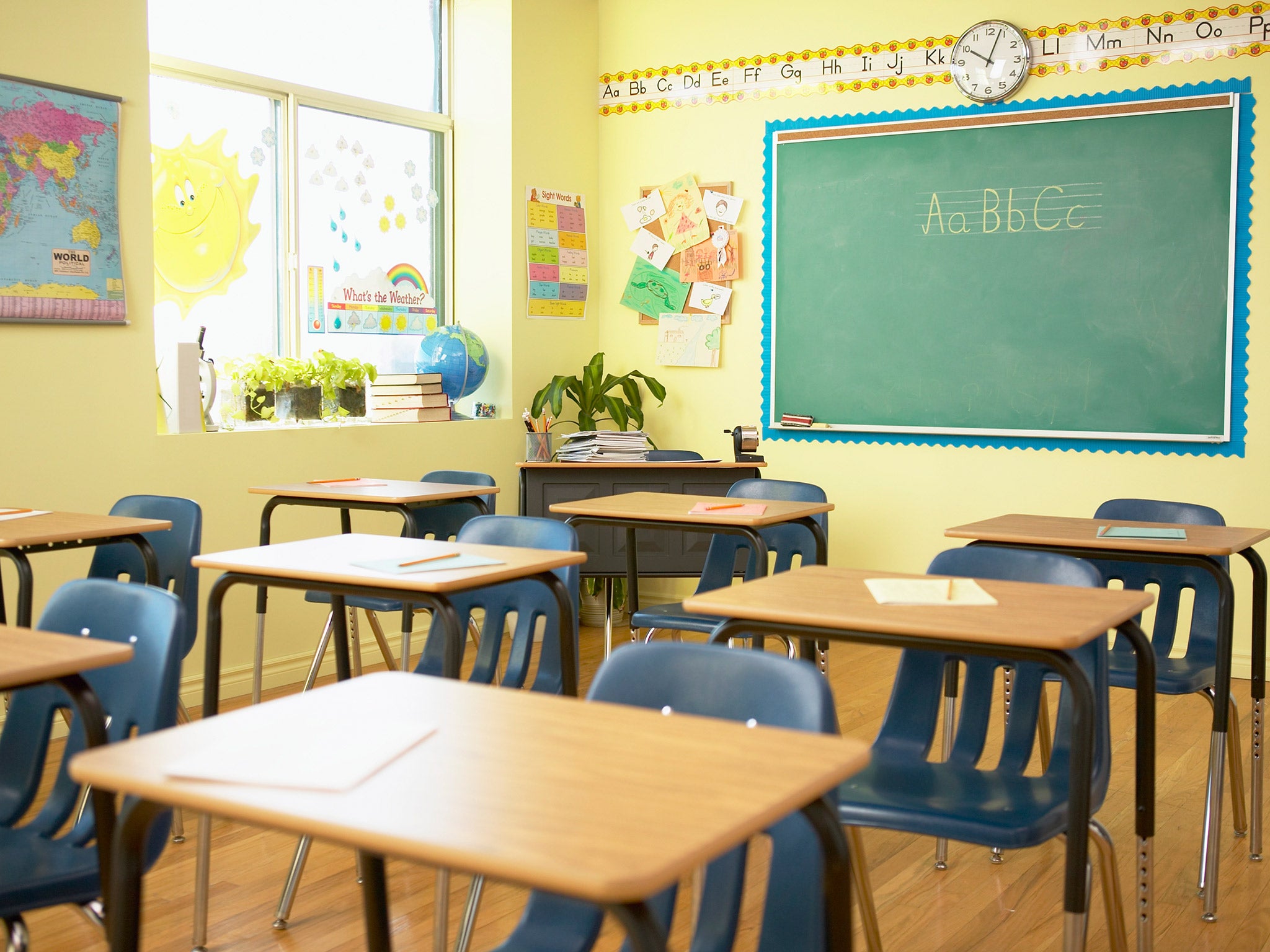Village school pupils forced to travel six miles for maths and English lessons
Pupils bussed to another village as Easington primary school in the East Ridings cannot find a permanent teacher

Your support helps us to tell the story
From reproductive rights to climate change to Big Tech, The Independent is on the ground when the story is developing. Whether it's investigating the financials of Elon Musk's pro-Trump PAC or producing our latest documentary, 'The A Word', which shines a light on the American women fighting for reproductive rights, we know how important it is to parse out the facts from the messaging.
At such a critical moment in US history, we need reporters on the ground. Your donation allows us to keep sending journalists to speak to both sides of the story.
The Independent is trusted by Americans across the entire political spectrum. And unlike many other quality news outlets, we choose not to lock Americans out of our reporting and analysis with paywalls. We believe quality journalism should be available to everyone, paid for by those who can afford it.
Your support makes all the difference.Children at a village primary school are having to travel six miles for their maths and English lessons because their own school cannot find a permanent teacher.
Pupils from Easington primary school, a 56-pupil school in the East Ridings, are being bussed to Patrington primary school for morning sessions on numeracy and literacy before being returned to their own school for afternoon classes.
The situation has been seized upon by Labour as evidence of a growing staff recruitment crisis in schools.
Easington, which is a remote village further away from a town than any other primary school in the area, advertised twice for a replacement teacher for the pupils - many of whom will be taking national curriculum tests for 11-year-olds this summer - but was unable to fill the post.
A statement from the William Temple Academy Trust set up by the Diocese of York - which runs both schools, said: “A great deal of thought has gone into how the academy can best meet the needs of the pupils, especially for Year Six pupils (ii-year-olds) who will be taking SATs in May.
“With this in mind we shall be providing transport for all Easington’s Year Five and Six pupils to go to Patrington for literacy and numeracy sessions.” Each year group would be taught alongside “the appropriate Patrington year group”.
“While this means the classes will be bigger,” the statement added, “we will be providing additional support in the form of extra teaching assistants for classes.”
It said the trust had “no option” in the matter, adding: “We hope that by being taught by the class teachers at Patrington will provide more consistency for the pupils than a succession of supply teachers for a couple of weeks at a time.”
The two schools policies on issues like behaviour and collective worship were the same, it added.
Easington lost a permanent teacher last summer and was unable to replace, They thought they had recruited a supply teacher to stand in for a year but she left at Christmas.
“Whilst ministers continue to bury their heads in the sand over teacher shortages, we are seeing more and more evidence that this serious issue is threatening standards,” said Lucy Powell, Labour’s Shadow Education Secretary.
“Just four days ago the Government denied there was a problem with recruitment despite the fact that half of all our schools had unfilled positions at the start of the academic year and some pupils are now having to travel to other schools for their maths and English lessons due to teacher vacancies at their own. This is an unacceptable way to run an education syste.”
She added: “It is not possible to drive up standards in our schools across the board without excellent teachers in ewvery classroom.”
A spokeswoman for the Department for Education said: “It is simply not true that there is a shortage of primary school teachers. Last year we recruited 116 per cent of our primary target.
“However, we know that some schools, and particularly some rural schools, find it more difficult to recruit.” As a result the Government had extended Teach First - which recruits highly qualified graduates to the profession - into every region of the country.
She added: “We expect headteachers and academy trusts to plan their staffing properly and the Regional Schools Commissioner is in touch with the school to support them doing that.”
Subscribe to Independent Premium to bookmark this article
Want to bookmark your favourite articles and stories to read or reference later? Start your Independent Premium subscription today.
Join our commenting forum
Join thought-provoking conversations, follow other Independent readers and see their replies
Comments